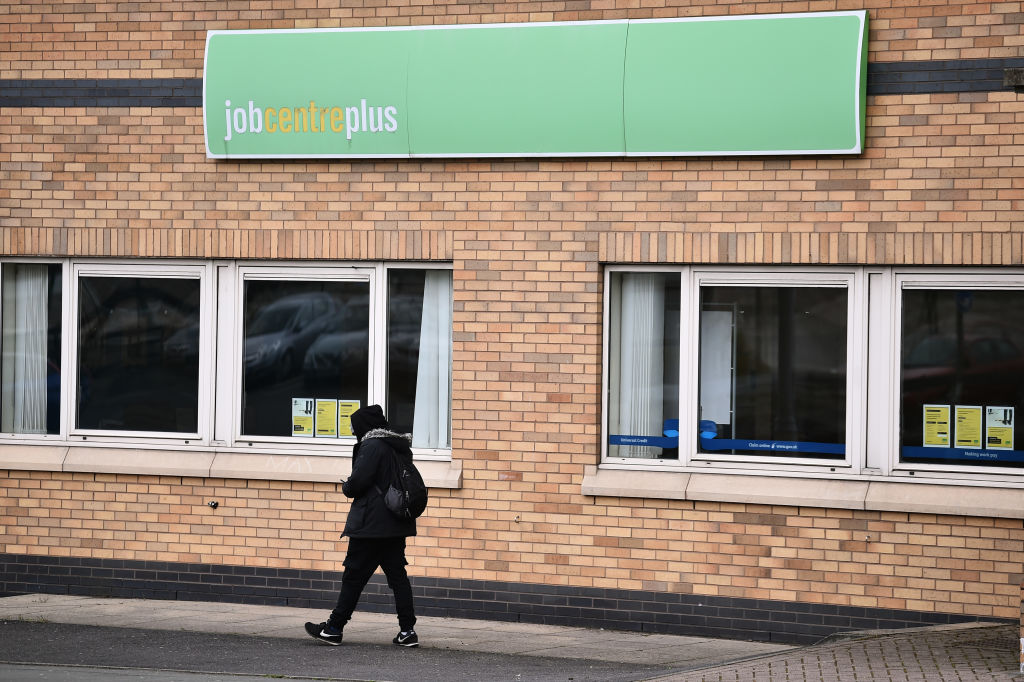When Tommy Robinson walked out of prison this week, he was unrecognisable. The far-right activist, who was jailed for contempt of court, was sporting a huge bushy beard as he emerged from HMP Woodhill. Robinson looked more like a man who had been marooned on a desert island, or lost in the mountains, than someone who had spent a few months in a Category B prison in Milton Keynes.
Robinson’s prison beard made me think of my own. When I was locked up at HMP Wandsworth, I grew a beard even wilder than Robinson’s. For the first six months in prison, I didn’t touch my facial hair, letting it grow and grow as the fat fell off me, until I looked nothing like my prison ID photo. Eventually I looked so different that I had to ask the prison officers for a new ID card.
For all his faults, Robinson is a master self-publicist
For all that my beard made me look dishevelled, I was comforted by my facial hair. It set me apart from the younger men in prison. In Wandsworth, aged 37, I was one of the oldest on my wing. Prison is a young man’s game, with most criminals growing out of crime before they reach middle age. The beard emphasised my age, I suppose, and helped me wear the role I took on of a cheerful, helpful, and fatherly figure.
Was Robinson hoping that his beard might send a similar message to his social media followers? It sounds trivial, but when men decide to let their facial hair grow, they are often intending to send a message or mark a change in their lives.
When Robinson was released, his beard didn’t last long. ‘From hobo to hero. The man is back!!!!,’ tweeted Robinson following a trip to the barbers on the day he was released.
My beard lasted rather longer. I decided that I wanted my facial hair to serve as a symbol that I was a new man. I had lied and committed a fraud. I had been sent to prison, and deservedly so. If I had any chance of redemption, I knew that I needed to change. My beard would show that I was a new man.
Eventually, after six months in prison, I asked a man named Charlie, who lived on the same corridor as I did, to use just a pair of clippers to tidy me up. He did so with incredible precision. I tried not to think about the life he’d taken with a blade. The pandemic put an end to these haircuts. But as lockdown abated and things once again ‘opened up’, I was able once again to get my hair and beard tidied up.
I relished those trips to the prisoner-staffed barber shop. It felt like normality after being cooped up in my cell. When I walked from where I slept to the barber, and when having my hair and beard cut while looking in a mirror, I thought about how much I’d hated haircuts as a child, and how grateful I felt for one now.
By that point, I was a few months away from release. Soon I’d be allowed ‘town leave’, then ‘home leave’. I planned to see a woman I thought I loved. Now I wanted a beard which she’d like, not one to convey age and wisdom to other men. That’s why, unlike Robinson, I left prison with my beard groomed and neat. I suppose I also wasn’t planning to give a press conference. I didn’t need to play the prophet for the cameras.
Beards have long been associated with wisdom. Perhaps Robinson wanted to show the world, and his supporters in particular, a visible sign of all he had endured, in what his supporters claimed was ‘solitary confinement’ but was, in fact, nothing of the sort. Maybe Robinson thought his beard would make him look wise? Was it an attempt to be seen as a prophet, returning to his people?
For all his faults, Robinson is a master self-publicist. When he appears in front of the camera, he knows what he is doing. His beard made him look dishevelled, but it was no accident: he was trying to send a message to his followers that he had been cast away by polite society. His followers lapped it up.







Comments